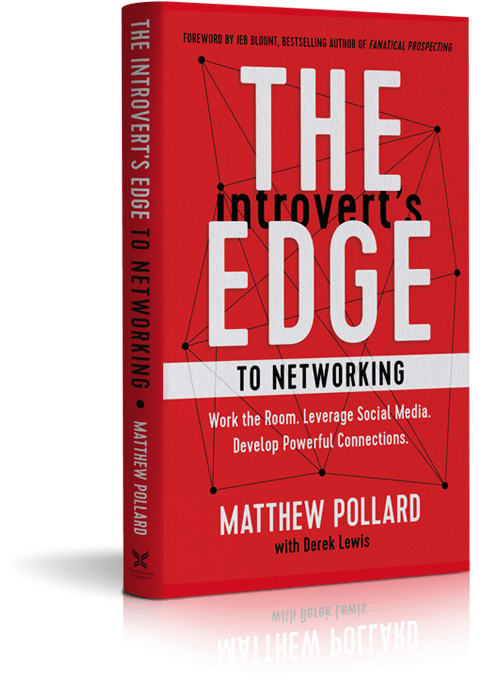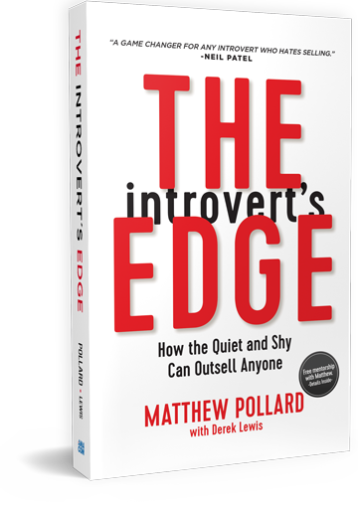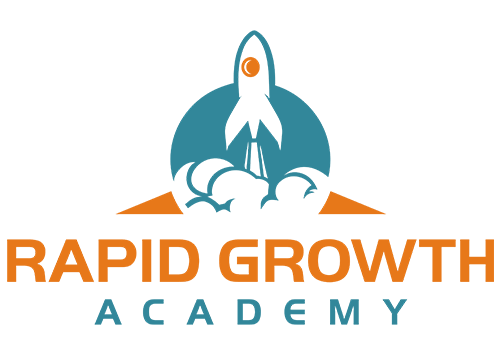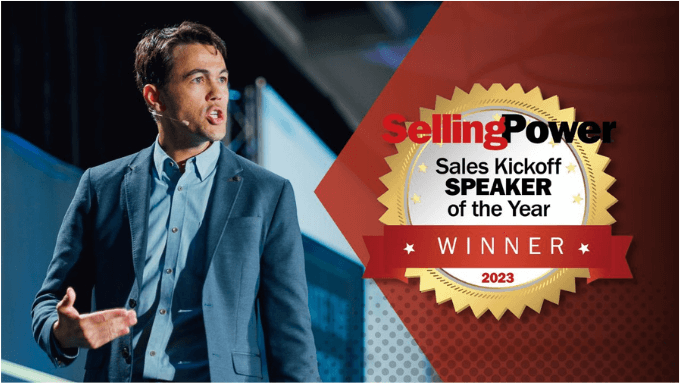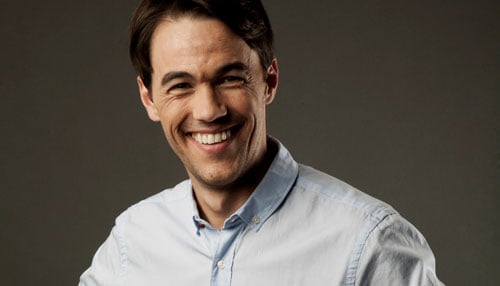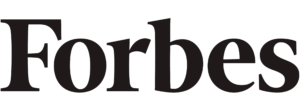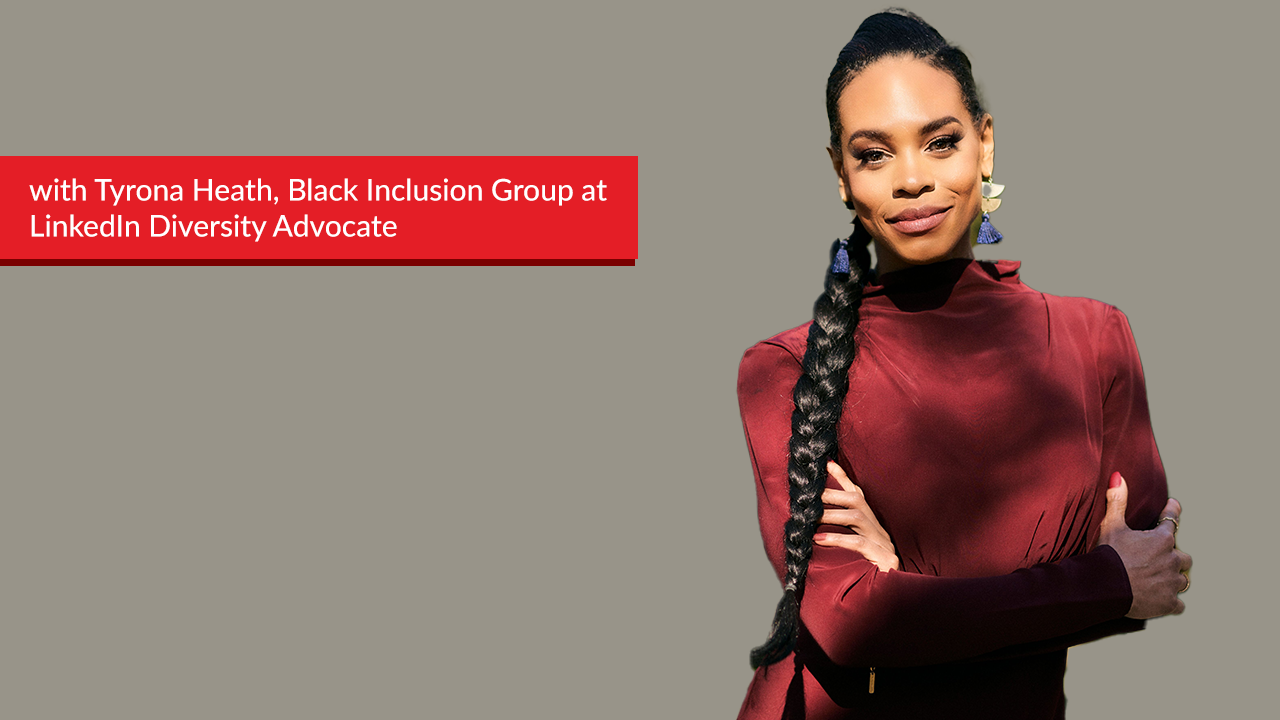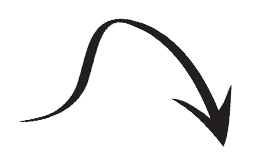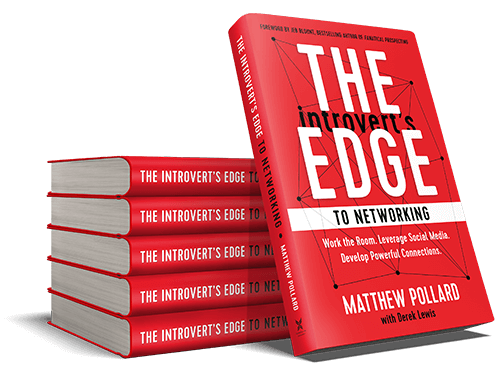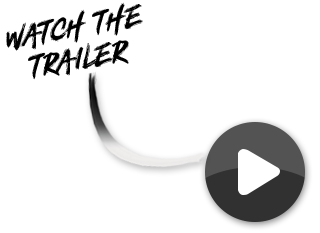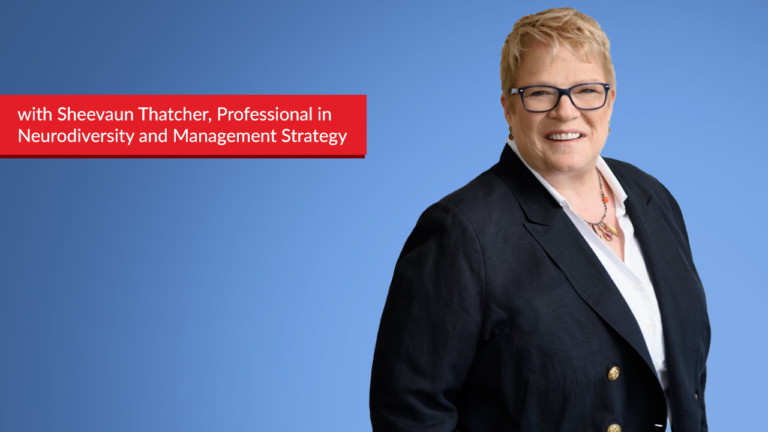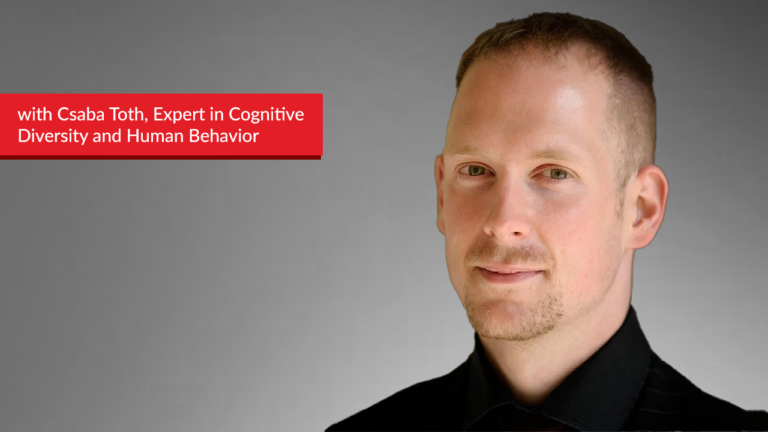Matthew Pollard: Hello, everyone, and welcome back to the Introverts Edge podcast. I have to say I’m ecstatic about welcoming our next guest, mainly because we had the best conversation before this interview, even because Tyrone Gates has the most impeccable résumé. I mean, she’s worked with Google, she’s worked with Nestlé, she’s worked with IBM, she’s worked with LIPA, and for almost a decade.
She is part of it all. She’s part of the Black Inclusion Group at LinkedIn. She’s founded the Transform View Group that, you know, is a conference that supports black women. It’s unbelievable how much she achieved. On top of that, she’s part of the American Advertising Federation. And if that wasn’t enough, she’s also qualified for the Olympics twice. So, I mean, this person has a resumé that just goes on and on and on.
And yes, she is an introvert, and I am I’m just blown away at the conversation we’ve had just leading into this. And she has a story about a line up of introverts to extroverts. It’s going to horrify you. So I can’t wait to jump in, but I thank you so much for joining us on the Introverts Edge podcast.
Tyrona Heath: Thanks for having me.
Matthew Pollard: Now I’m really interested about really diving into your own personal story because, I mean, firstly, a lot of the tests that you’ve done kind of start to classify you as that. And the now because everybody’s trying to get everybody to, to not be introverted, right? Because that’s the that’s the disease. The world trying to help people get out of it drives me nuts.
But what I would love to just understand from yourself, because your own personal journey is really interesting, especially as you kind of came into the world speaking and, you know, your energy and how you draw your energy. I’d love for you to just for those people that are like, Wow, this person, she’s very articulate. Everyone. So you’re going to discover that for those people that are hearing you for the first time, help them understand your kind of own, you know, introverted journey and path to speaking on stages and and being the influential person you are.
Tyrona Heath: Yeah, Yeah. Thanks so much again. And what you said about, you know, the classification of ambivalent that’s now being the people not willing to say, I am an introvert potentially because of what it means. I think I part of sharing my journey is also sharing that the journey in my mind was a journey of accepting myself for who I am, for everything I am and everything.
I’m not right. We all have ways of being. Some of those came from the things we had to do to survive and make it. But there are also some like fundamental things that I now very comfortable in my skin that I’ve come to accept about how I like to work, how I like to show up, the way I like to have relationships with people.
And I’m excited to say that those things are perfectly fine and I want everybody else to feel the same way that I feel about those things. If you can get to that space, it’s a very peaceful space. But, you know, I grew up in upstate New York between upstate New York and the island of Jamaica, and my parents are from Jamaica.
I was born in the United States and I my sisters and I were the only black children within the school, pretty much. So I grew up between the two spaces, feeling very much like I didn’t fully belong, I would say. So that I think was a huge part of growing up and not quite feeling like you fit in.
And if you can imagine as a child or someone trying to make your way, trying to make friends instead of being like the odd person in each environment, it it means that you’re doing a lot of you’re doing a lot of thinking. There’s a lot of pressure to to fit in. And so that was a journey in itself, you know, just, you know, learning how to sometimes just be by yourself, trying to suss out, you know, who could be a friend to you, you know, who who could honor being friends with someone that’s very different than perhaps the people, the other people they surrounded themselves with.
So I became very comfortable being uncomfortable doing a lot of thinking. I spent a lot of time writing and reading. I do think that even if it weren’t that way growing up, I would still have been the same type of child. My mom would take my sisters and I to the library and, you know, those big brown grocery bags that you get, Not the small ones, a large ones.
I would fill that up to the brim with books, get home, go to my room, shut the door and go through it. Just keep reading. And that was heaven for me. And I wish I had the same kind of time to be able to do that. I just that is really a happy place for me. I spent a lot of time writing stories, synthesizing ideas, even as a child, you know, I liked talking one on one with my sister or like the few friends that I did has that was really precious to me.
The thing that I think really started to open me up was being involved in track and field. So if, you know Jamaicans, you know, we love track and field, literally grew up going to the track. My dad would take me down there and show me how to get out of the blocks and, you know, it was just a huge part of my life.
And track is an individual, pretty individual sport compared to other sports. But in the training together with people that, you know, there is a team. And I think that is a huge a huge part of, you know, sparking confidence, discipline, getting accomplishments, winning these things, you know, open me up. They also became ways for me to connect with other people who were in similar spaces.
And the fact that we had relays, which was like one of my favorite part of it, that you have a team. So that was a huge point of connection in terms of opening me up to connecting with more people. But, you know, I think a couple more things. I have two sisters. I always say have two sisters. One passed away when I was 16 from the age of 12 to 16.
She so she had cancer, so she had to be away to get chemotherapy. So I think what a picture of painting here is. I was by myself quite a bit and that I had to grow up pretty quickly. I think it, you know, afforded me the opportunity to really practice compassion and empathy. I had to be more attunement.
I had to be more attuned as a black woman or as a black child growing up in a space that wasn’t designed for me to be successful. I had to watch and learn and listen and be able to read people’s expressions. And so I would say, I mean, and again, I am not saying these things coming from a space feel bad for me because I think a lot of these things fueled my success today.
And a lot of them, I would say, are connected to the superpowers that I have and why I’ve been able to be successful today. I think that you can look at any challenge or any uncomfortable situation as a growth opportunity. So, you know, that’s that was a little bit about my journey kind of growing up. But I think these are the same things that have helped me with my entrepreneurial journey, with corporate being able to listen to what people are saying, be attuned to, to what they need, and really thinking about how the words I am speaking land with other people, thinking about how you can inspire and motivate people when things are difficult.
Thinking about how to keep people united as a team and what individually motivates people. These are all things that I’ve learned and I wouldn’t change a thing. I mean, obviously there’s some bad things in there. I wish. I wish I still have my little sister. But the experience, you know, the challenge of it is what I appreciate. And overall, the I, you know, can’t undo it.
We go through what we go through. But the context I’m choosing to look at it in is that not one of disempowerment, but one that I was able to grow from.
Matthew Pollard: Thank you so much for sharing that, that inspiring story. I think that for a lot of people listening, they they need to really hear that message because a lot of people kind of limit themselves in a way where they say these adversities mean I can’t succeed. And for every successful person that I’ve met, usually it’s those adversities that seed the success of their future.
And they they use those adversity to also empower others to do the same. And I’ve you know, I’m wondering the connection because of that empathy that that’s created for you with the transform her conference and the Black Inclusion Inclusion group that you have at LinkedIn, how have you seen your ability or to see those problems that other people having and helping them break through those limitations?
You know, we had Jerry Bingham on on the podcast and she talked about it through the lens of being a woman of color and the introversion and how all of those kind of interplay. And and I’m just thinking about the conversation we had privately before this episode where you kind of highlighted that it’s tough sometimes for for people when you think about all of these different combinations of diversity all packed into a single person.
Tyrona Heath: Yeah. Yes it the I feel do these things very deeply. Let’s start there. I when I see people and given what I’ve experience, it allows me to tap more deeply into what it is like to stand in the shoes of someone else who might be going through something similar to what I’m experiencing, and even to identify and put myself in the shoes of people that I don’t have shared identity with.
You know, one of the things that we realized, like whenever you go to a movie, for example, you’re sitting in watching the movie, it’s a story and there’s a main character and they go through their journey. And for that time that you’re watching the movie, you are able to feel what that person is, is going through. And I think that when you listen to people’s stories, you know, if if you has, you know, the compassion and empathy, at a minimum, you want to help them somehow.
But, you know, do to acknowledge the fact that they’re dealing with or you can step out on a bigger ledge and actually take action and do something about it. And so I couldn’t not do something. The what I see, you know, and there’s still a lot of work to do when it comes to the act. Have creating equitable spaces for people.
What I what I saw is that we oftentimes in corporate spaces, whether tag or other industries, might be the only person of color on a particular team, maybe the only woman in some cases. So there’s an isolate and there is sometimes circumstances where people don’t always immediately acknowledge and recognize your value because of bias, which is unavoidable for us as human beings.
Everybody, whenever you see somebody, you immediately start creating a story about who they are, perhaps associated with whatever stories that already exist out in the world about that person. And so there’s a reality to people who have multiple intersectional identities and to what that means for them to move around in the world. And a lot of times and thinking about this topic of introversion, specifically our culture and my culture, I mean, in the United States, honors, celebrates, exalts, rewards extroverted behavior, you know, and then if you think about the other intersectional identities, there are certain stereotypes and biases that come with being a woman.
There are certain stereotypes and biases that come with being a black person. And so if you’re a introverted black women woman, you know, layer on whatever you want to layer on, you know, these are intersectional identities you share and have to navigate through. So I created Transform Her to bring together women of color across tech into a space where maybe you’re the only one at your company, but now at this event you are able to make connections with other women of color and active allies who are also in the space that can, through the stories told at the event, can see and understand what it’s like to stand in your shoes and therefore you can have the support, the connections and the the thinking and the regard that you need to make progress. And so that’s really the intent of the event, is to really help people feel less alone and more connected. And also not like you’re going crazy. And in an environment where that really wasn’t designed for.
Matthew Pollard: You, I think that’s really powerful. You know, we interviewed one of the senior leaders at the American Heart Association. They create a support group just for introverts as well. And it was amazing to see how liberating that was for so many of the members. And I, I feel that especially as we’re getting into all types of diversity, including, you know, cognitive diversity, it’s so vitally important to embrace that.
But as I’m doing this, the classifications worry me and I don’t I understand and I can only assume what it is like too, for a lot of different biases. But I’ve seen firsthand where they that we’re all professionals feel that they’re doing an integrated person a favor by protecting them from any form of leadership role and keeping them in a copywriting job or not considering them for certain roles because of the unconscious bias of believing that poor Sarah can’t do that because she’s introverted or we won’t put her in that position where she can be set up to fail.
And as I’m thinking about that, I am remembering almost wanting to vomit. When you told me about a thing that happened in an event that you were at recently, which sounds like something that would have only happened in like a prisoner of war camp in my mind. So I thought, Would you mind just elucidating that? I’m sure the person was really well-intentioned, but the effect that you found as a person with high empathy, that what you saw happened to the people in the room?
Tyrona Heath: Yeah, there was it was cringe or cringe worthy moment for me. And I can only like, as you said, I’m certain this was a well-intentioned thing, you know, do take in this program I was in, we had to take one of these sort of personality tests. I don’t I don’t think it was Myers-Briggs something of that nature. We’d take a test and we had the results of the test in our hand in the in the event.
And we were asked to stand in a line from level of introversion all the way to level of extroversion. So it was like degree of introvert into extroversion. Please line up by yours by that. And so all of the participants spanned across the room and I if I felt uncomfortable and I couldn’t help but think, you know, what is the intent here, I what we’re what we’re talking about a lot of these labels and things that we use to kind of make sense of the world.
And I think people do this because we want to control things. We try to do things to help us feel like we can manage uncertainty here. But these are constructs if we if we get down to it. But they are very real for people. And you know, I don’t I don’t think that is is your goal is to honor and respect the different skills that come from each person’s different way of being and showing up that that is the right way to go about bringing those things out, especially since there was nothing said to address that.
It’s perfectly fine to be standing in one end of the room, the middle of the room or the other end of the room, and perhaps what could come from the lens or the experience or the skill of what each person and at each end of the scale, you know, could contribute. So that was it was tough. It was tough to take in you.
Matthew Pollard: I can imagine. And I remember you kind of saying that the person on the high end of the extroversion scale was standing there from a sense of pride where the person on the far end of the introversion scale was almost standing, standing with a sense of shame, kind of crouched over and yet, yeah, from a performance perspective, depending on the job function, the certain skills that they had acquired through life, that person on the far end crash engine in shame might have been the highest performer in their organization.
And you just you don’t know this arbitrary classification, is it right?
Tyrona Heath: Yeah. We’re all in the room for a reason, you know, that’s B let’s start there. Yeah. Yeah. But absolutely the person on the extroverted side of the room is jumping out of their skin and the person with sort of a, you know, that that silence kind of standing very still on the other end. And, you know, I think you the exercise also didn’t honor how like just even thinking about the structure of light of the exercise overall, if you’re someone who needs to, it doesn’t mean you’re shy.
Let’s be clear. We’ve we’ve talked about this. Does it mean that you don’t want to socialize or you don’t? But, you know, these events don’t always consider creating spaces or thinking about how to honor people who maybe identify as more introverted, who perhaps need space to energize, recharge, or who want to connect in more intimate spaces. That’s right.
Matthew Pollard: That that that’s a really important point, I think, for a lot of people listening, though. And I just I’m hoping to steal your expertise from other arenas because you have lobbied for women of color, you’ve lobbied for people of color, you’ve lobbied for women and for a lot of people. These are dangerous territories to talk about, to have open dialogs about because they don’t understand them.
And I feel like introversion is just another thing that people don’t understand and that they’re scared to bring it up. And I’m thinking back to conversations that I’ve had where people think the desired effect is to get out of that condition of introversion and find their way into to extroversion. And I feel that you have a different lens that you might be able to add value here for those leaders that are like, okay, I want to have an open conversation where people don’t see introversion as a positive or a negative or extroversion for that matter, is a positive or a negative.
But I want to help kind of lean into everybody’s strengths and also make sure everybody understands they can achieve. What advice would you give them to helps create a safe place for an open dialog and not make anybody feel less than, but also create a place where they can fill those skills gaps and create a really successful dynamic team?
Tyrona Heath: Yeah, if you are trying to like the key word is tweet, and if you’re trying to create a strong team, imagine having only one type of player on your team. One type. Yeah, you only have a center, you know basketball, right? Yep. You have one, but you really can’t do anything with that. It’s really difficult to advance. And so what leadership is part of being a leader is looking at each player, each person you have and thinking about how do I create the strongest possible team?
How do I balance where, where weak, how do I strengths and where we need to be strong? And a lot of times that means drawing from different types of people. And it is inside the even creative tension of disagreement. But with people that have different lenses, they bring that to the table that the strongest possible ideas, you know, that the decisions that maybe need to be made are going to be the strongest possible decisions because they’ve been vetted and seen that you have people to do various things within your team playing together, you know, So maybe it’s one person who’s two, who’s doing a particular task and then somebody else is is taking, I think
about it like a relay, a track and field relay. You’re passing the baton. Each person plays their part and delivery. So I think in our culture that celebrates extroversion, we often lose sight of some of the amazing skills that introverts have, listening to, you know, the diligence and preparation. And again, not saying that extroverts don’t do this, but I’m saying these are the, you know, building, having deep conversations to really understand what someone needs.
You know, I think for me, I the way I sell is really through ideas, is through relationship building. It is really through depth and it’s through depth that trust can open up. And that’s one way to do it. And there’s also folks that we need to be social and have fun and have a great time. And we like to do that too.
But we may need a break as well. But it also I just I just think it’s just acknowledging and really taking the time to understand and value the people that you have and don’t overlook people who are listening more than they talk. Don’t overlook the the the person who needs to step away because they need to recharge their energy.
Matthew Pollard: I think that’s a really powerful message. And, you know, and I’m ecstatic that you started to open the door to to the conversation around sales because for those people, by the way, haven’t registered for the introverted seller Summit yet, I would absolutely do that because Ty’s going to be on there. We’re going to go a little bit deeper into the the sales strategies in the sales advice, but I’m also ecstatic that you started to talk about the introverted strengths and like the fact of the matter is, and I know Ty, you are very focused on making sure this wasn’t an extra bashing session.
And as you know, I don’t see there’s not to me, there’s nothing wrong with being extroverted or introverted. Just people have different skills gaps. And for me, I want to see that introverts realize they can achieve anything that they want. They’re not limitations, they’re skills gaps just like an extrovert that perhaps doesn’t listen and doesn’t empathize. Well, I hate our profession will say, Go get coaching.
You can fix that. We need people to see introverts the same way we have our skills gaps. And that doesn’t mean you need to want to be a sales professional. It doesn’t mean you want to speak from stage, but it also does mean you can if you choose to and because of that, I want to really bring back to this.
I asked this question at the end of every interview, and that is I believe that there is such a stigma around introversion and people forget about the strengths that we have that really define our success. If you could pick one strength that you have that you could consider your introverts edge, what would it be?
Tyrona Heath: I love listening to complex ideas from all over the place and synthesizing them and making them simple and accessible and easy to understand. That happens because I do spend a lot of time in my head thinking about things quietly, walking around, staring off into space or at the wall. It’s really because I am thinking and I putting things together and I’m alone.
Doing that, or with a few people just kind of bouncing things around. So that’s an urge I would not give up. It’s, it’s, it’s quite remarkable.
Matthew Pollard: I have to agree with you. I mean, synthesis, I would say, is one of my greatest skills and so many I was talking to Siobhan from Salesforce just the other day and she said a similar thing. She said she gets lost in the shower, her showers are way too long. Someone and it’s just because she’s had an idea.
But she brings that idea back to her organization with depth of thought. And I’m always reminded of Richard Branson kind of saying, any idiot can make something sound complicated. It takes an expert to make it sound simple. And I think synthesis is by far one of the most powerful things on that. Look, I feel like I could interview you for another hour.
I I’m glad that I get to interview you again for the introverted Sela Summit. But for today, if people have just heard of you for the first time and perhaps they are a woman of color, or perhaps just something that you said inspired them, where can people find out more information about you?
Tyrona Heath: Yeah, so you know what I’m going to say? Connect with me on LinkedIn. So definitely connect to be there. And also Tyrone and Keith on Instagram as well.
Matthew Pollard: That’s that’s perfect. Absolutely. Did not see that coming, but.
Tyrona Heath: But those people would think.
Matthew Pollard: Thank you so much for joining us on the Introverts Edge podcast and we so look forward to seeing you on the next episode. We’ll see you next time. Cheers.
Tyrona Heath: Thank you.







